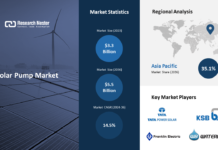In 2020, the COVID-19 pandemic swept the globe causing unprecedented impact on families, healthcare systems and economies. It has led to a devastating loss of life and had disastrous effects on national welfare.
It has also put a spotlight on the need for all people to have access to basic protections and basic services. This includes electricity. Without it, we cannot power health centres, cannot share critical information and cannot re-energise our economies. Today, nearly 800 million people still live without electricity – no power to stay connected, no power to support a business, no power to turn on a light.
The off-grid solar sector is committed to combating energy poverty and driving economic activity. In 2019, it was making remarkable progress, with record-breaking sales. Continued growth in 2020 was expected to boost the sector’s 370,000 clean energy jobs and enable it to power millions of new homes and businesses. However, like many other sectors, COVID-19 has led to a slowdown in progress and threatens its ability to reach and sustain the 13% year-on-year growth rate needed to meet SDG73 – affordable, reliable, sustainable, and modern energy for all.
In the first half of 2020, global sales of off-grid solar lighting products fell 26% compared to the same period in 2019, with only 3 million units sold. These were the lowest volumes recorded since 2014. While all off-grid solar product categories were affected by the challenging conditions, declines in sales of entry-level products, often purchased by customers living on the lowest incomes, were most severe. Sales of portable lanterns without mobile charging dropped below 1 million for the first time since record keeping began.
Globally, all regions registered a slowdown. The worst affected was South Asia, where the challenges seen in the market in previous years were exacerbated by the COVID-19 pandemic. This led to a nearly 60% drop in sales in comparison with the first half of 2019. Prior to the crisis, the Sub-Saharan African market was expected to see strong and continued growth, yet in comparison to the first half of 2019, sales in East Africa dropped by 11%.
The economic impact of COVID-19, compounded by the worst locust infestations in decades and heavy flooding in key markets all contributed to this decline. Sales in West and Central Africa remained relatively stable, however, this was primarily due to bulk procurements in specific countries made prior to the pandemic. Whilst the drop in Sub-Saharan Africa was still a curb on progress, public support for the sector seen in a number of countries helped to mitigate even greater impact.
READ: East Africa Data Centre in Nairobi to be powered by solar PV System
Sales of efficient appliances were also affected by the COVID-19 crisis. Sales of fans saw the largest absolute decline compared to the first half of 2019, linked to stringent lockdown measures in their biggest market, South Asia. Solar water pumps and refrigeration units also saw a halt in growth.
Sales of TVs showed a more positive story, with companies indicating this may be due to customers recognising the value of entertainment and access to information in the early stages of the lockdown. However, although sales volumes were equivalent to the first half of 2019, they dipped by 21% compared to July-December instead of continuing their strong upward trend.
In the months ahead, COVID-19 is expected to slow economic growth in low-income countries to the slowest pace in 25 years6 and push over 70 million more people into extreme poverty. This causes significant concern for energy access and other development goals. In the last six months alone, an estimated 5 million people missed the opportunity to benefit from clean, safe solar electricity in their homes and businesses.
In addition, the exciting strides made by the solar water pump and refrigeration sectors – with their potential to transform agriculture and food security – have also slowed. This knock to progress has led the IEA to adjust its outlook on global energy access. When looking at the expected energy access contributions from multiple technologies (national grid, mini-grid, off-grid), the latest data estimates that 660 million people worldwide will still live without electricity in 2030 in a baseline scenario, or 760 million in a delayed recovery scenario. The challenges may appear overwhelming, but they can be overcome. A number of initiatives are already underway.
At the peak of the lockdown, many national governments gave off-grid solar ‘essential service’ status, enabling companies to continue their operations with the same exemptions as large-scale electricity utility companies. This not only kept the lights on for thousands of homes, it also expanded support for off-grid solutions outside of energy, education and environment ministries.
Driven by the sector’s leading investors and development partners, several industry relief efforts are also underway to provide the sector with financial, technical and operational support. At the same time, the industry itself has responded to the pandemic head on, with companies working to provide flexibility in customer financing, streamline operations and protect staff. These vital actions are a strong start. However, to regain the momentum seen in 2019, more is needed; from enhanced regulatory and policy support to the creation of dedicated initiatives to galvanise investment.
COVID-19 has slowed progress on energy poverty, yet it has also highlighted just how vital electricity is to combat the pandemic and drive recovery. To create healthier, more resilient communities and re-energise economies, the off-grid industry must get back on track. By working together, we can unlock the innovation, creativity and impact of the off-grid solar sector so it can continue to reach millions of energy poor families and help the world to build back better.




